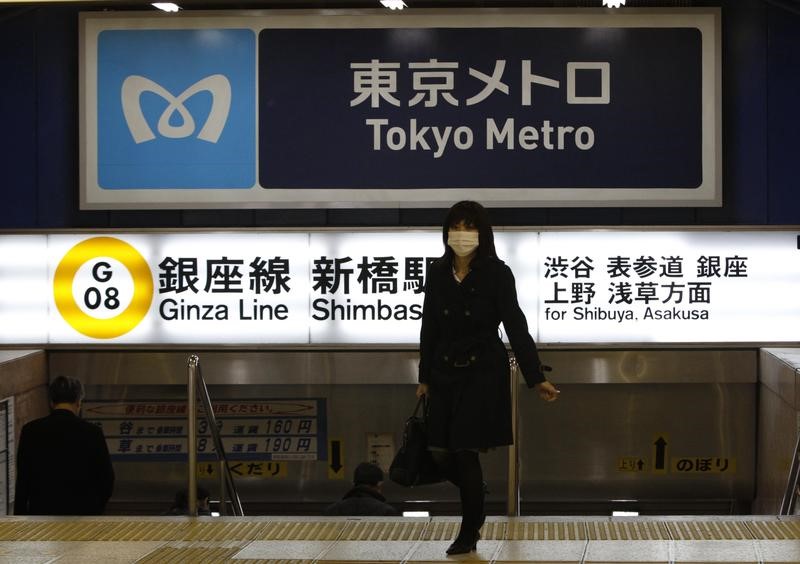Investing.com -- Consumer price index inflation in Japan’s capital rose more than expected in April, moving back towards 40-year highs after a brief decline and likely signaling more pressure on the Bank of Japan to tighten policy this year.
The Tokyo core CPI, which excludes volatile items such as fresh food, rose 3.5% in April, data from the Statistics Bureau showed on Friday. The reading beat expectations that inflation would remain steady from the prior month, at 3.2%.
Including volatile items, Tokyo CPI rose 3.5% in April, more than expectations of 3.1% and the prior month's reading of 3.3%.
The reading was largely driven by an uptick in the prices of food and household goods, which offset falling electricity prices. The Japanese government had introduced subsidies on household electricity bills earlier this year, in a bid to reduce inflation.
The Bank of Japan signaled earlier this year that inflation would ease in the first half of 2023 on the subsidies, before picking up again towards the end of the year. But Friday’s reading signals that said pick-up may be coming earlier than expected, with the core rate now hovering close to January’s 41-year peak of 4.3%.
Tokyo inflation usually heralds a similar trend in nationwide inflation, given that the megacity accounts for a bulk of Japan’s economic output. Nationwide inflation data for March, released last week, signaled that inflation was once again turning sticky in the country after two months of declines.
Friday’s reading comes just before a Bank of Japan meeting later in the day, where the central bank is widely expected to maintain its ultra-loose monetary policy.
The meeting is also the first under new BOJ Governor Kazuo Ueda, who has signaled that policy will remain unchanged in the near-term.
But Ueda also suggested that a consistent rise in inflation and wages will spur some tightening later this year. With April’s CPI reading suggesting a quicker-than-expected uptick in inflation, the BOJ could tighten policy sooner than expected.
The Japanese yen firmed 0.1% after the inflation reading.
